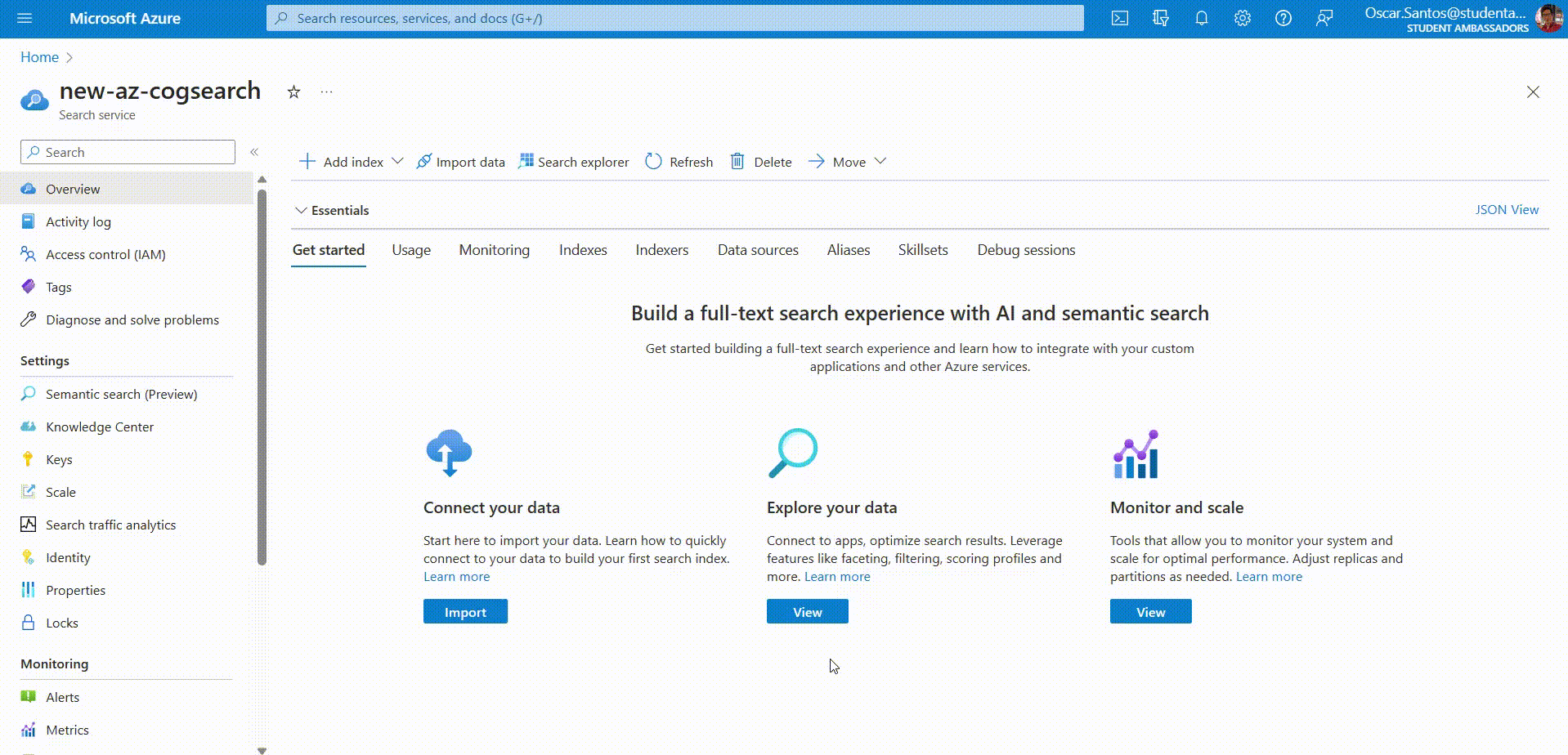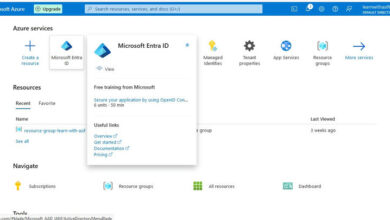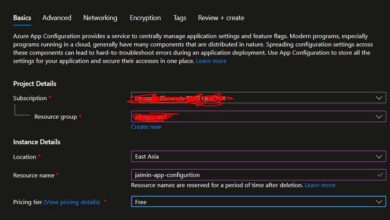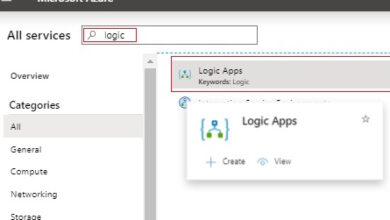Exploring Azure Cognitive Search’s Power
Introduction
Welcome to the fascinating world of Azure Cognitive Search! This cutting-edge technology is revolutionizing the way we interact with data in our data-driven society. With its advanced capabilities, Azure Cognitive Search goes beyond being just a search engine. It serves as a gateway to unlock valuable insights from vast and diverse datasets. In this article, we will delve into the features and customization of Azure Cognitive Search’s AI capabilities using a sample dataset of hotels.
Search functionality is crucial in modern applications as it connects users with the external data stores containing their unindexed data. Its significance lies in its ability to quickly and efficiently provide users with the information they need.
Whether it’s finding products in an e-commerce platform, accessing specific topics in an educational platform, or locating critical data within an enterprise system, search mechanisms simplify the process of going from query to result.
This article is organized as follows:
- Key features and capabilities
- Customization and AI
- Future of Search: AI and Beyond
- Summary
Pre-requisites
- In order to use Azure Cognitive Search, you will need an Azure Subscription. If you don’t have one, you can easily get it here. As a student, you can also create an Azure for students account.
- Having some familiarity with fundamental search terminology will help you better understand the concepts and functionalities discussed in this article. If terms like “query,” “indexing,” and “relevance” are new to you, it is recommended to read this article first. The article provides step-by-step instructions on creating the resource in Azure. Follow the steps from the Demo section, choosing “hotels-sample” instead of “real estate-us-sample” during data import and skipping the “Add Cognitive Skills (optional) section”. Keep the default options for “Customize target index” and “Create an indexer” sections.
Key features and capabilities
Azure Cognitive Search is a cloud-based service that empowers you to create immersive and effective search experiences for your applications. With Azure Cognitive Search, you can:
- Index and query data from various sources, such as Azure SQL Database, Azure Blob Storage, and Azure Cosmos DB, among others.
- Apply AI capabilities through cognitive skills, including natural language processing, computer vision, and knowledge mining, to extract insights and enhance your data.
- Customize and fine-tune your search relevance, ranking, and scoring by utilizing built-in or custom analyzers, tokenizers, and skillsets.
Additionally, you can leverage semantic search features like semantic ranking, captions and highlights, and answers to provide more accurate and relevant results for your users.
Customization and AI
Azure Cognitive Search can be customized to meet various needs.
Let’s consider an example using the Search Explorer, which relies on the established index. Without entering a query, all results returned have a search score of 1. Now, let’s imagine we search for a hotel named “Thompson House”. Upon running the search with the query “Thompson House,” only one document is returned, which is the information about the Thompson House hotel assigned a search score of 7.5213.
However, it’s essential to note that multiple results may be returned, each assigned a search score based on their relevance. These results are organized in descending order according to their search scores. This is where customization becomes vital. We want to identify the document that best matches the query, so careful analysis is necessary.
One possible customization option is Semantic Search, which uses deep neural networks to provide relevant results based on semantics rather than just lexical analysis.
Let’s take a more complex query as an example: “Hello! I am looking for a hotel in Albuquerque. Can you assist me with some recommendations or provide information about available options?”
When we perform this query without Semantic Search, we may receive non-relevant information, as shown in Figure 1. However, when Semantic Search is activated, as depicted in Figure 2, we get more relevant information, even though the search score may not be as high as before. This is due to the introduction of an additional search rerankerScore, which helps retrieve a hotel located in Albuquerque.
To enable Semantic Search, first select a plan, as shown in Figure 3. Then, within the Search Explorer, create a configuration and select it for your queries, as illustrated in Figure 4.
Future of Search: AI and Beyond
The future of search technology is on the brink of an extraordinary transformation, driven by the integration of artificial intelligence. As AI continues to advance, the future of search promises to deliver a more personalized, contextually attuned, and streamlined experience in retrieving information.
Azure Cognitive Search also offers AI enrichments through cognitive skills, which were not included in the previous examples. These capabilities encompass various realms such as natural language processing, computer vision, and knowledge mining. With these AI-driven enhancements, search tools can extract insights and augment your data, providing a wealth of enriched content.
Summary
In this article, we explored the transformative landscape of Azure Cognitive Search, understanding its potential applications and learning about its key features, capabilities, and customization through AI.
We began by creating an Azure Cognitive Search resource and importing sample data. We then delved into the mechanics of query execution and search scores, highlighting their role in refining search results. Lastly, we looked into the future of search, where the fusion of artificial intelligence and search technology promises to reshape information retrieval.
In future articles, we will guide you through implementing these search capabilities into your applications.
Don’t forget to visit Skrots to learn more about our company. Explore our services at Skrots Services. If you want to stay updated, check out our Blog at Skrots for more insightful articles. Thank you!




